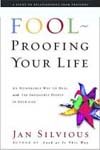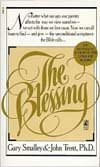Even though we know that life is not fair, there is something within us that is convinced that certain things ought to be just. The one who follows Christ is to be committed to justice for others. Micah 6:8 tells us, “He has told you, O man, what is good; And what does the Lord require of you but to do justice, to love kindness, and to walk humbly with your God?”
However, despite our efforts, we live in a fallen world. Sometimes we have a hand in making something unfair for someone else. Sometimes we are the ones who are handed the “unfair” card. When we think of the sweet psalmist of Israel, David, we can see he walked into an “unfair” situation with a significant person in his life.
David was in a tough spot from the beginning in his relationship with King Saul.
Transition in governments are more typically problematic than not. It was hard for Saul to accept that a young king from an unexpected source was anointed King from Israel’s revered and respected prophet, Samuel. And although David was anointed, he was not at liberty to exercise his authority until the current king was removed from power. As a “man after God’s own heart”, David knew this transition of power was “God’s deal” to accomplish – not his. Author Thomas Rodgers related, “Being anointed king and becoming king were two different things.” Although David had the right to the throne an ungodly man sat in power and would do so for the next fifteen years! There was intense rivalry between the two, “but David patiently waited for God to work out His program so that he could sit on the throne with honor”. Saul tried hunting down David and attempted to kill him. David dealt with these overwhelming circumstances by trusting in God, acting in bold faith and being incredibly patient. David had a very mature understanding of God’s heart in the area of authority. Even though the man that occupied the office of king was an ungodly man, David would neither demean nor trivialize the office in any way. What typified David’s nature in his relationship with Saul was patience and outrageous (from a human stand point) trust in the sovereignty of God. David’s conscience was tender and it was important to him to do the right thing.
Saul’s attitude toward David was characterized by jealousy and insecurity. Conversely, David’s attitude toward Saul was characterized by a gracious, forgiving spirit and a magnetic sense of security that was anchored in his relationship with God.
Although life was not fair for the fifteen years for David from the time he was anointed King until he was officially honored as king, David’s character was honed and refined by the “unfair” process. As in the case with much adversity, the time in which he had to bear under the weight of injustice proved to be a time that sweetened his spirit and forged him into that man that was “after God’s own heart.”
Are you in a situation that is just not fair? Take courage. God is still working. God is sovereign and makes possible that the oven or your adversity will form in you a gentleness and sweetness that makes people want to be around you, because you are becoming “Christlike.”
“For He knows the way I take; When He has tried me, I shall come forth as gold.” Job 23:10
Friday, October 29, 2010
Thursday, October 28, 2010
The Book of Hope

We meet together on Sunday mornings. For some getting up early on the one day they have to sleep in is a sacrifice. A couple of them come even through they suffer chronic physical pain due to injury and a mysterious illness that promises a headache every day - for years. Two are from military backgrounds and one works through the night, then comes. One has a Ph.d. Some have young children and complicated schedules. A couple are staff members with many responsibilities. Yet they come faithfully for one reason - to be trained to help others by immersing themselves in a year long study of the Bible - the book of hope. Through the Bible we find hope for overcoming significant and massive problems in life. A small list would be self-belittlement, self-exaltation, self-pity, envy, jealousy, greed, preoccupations with self, anger, bitterness, the need to forgive, communication, troubled marriages, difficult parent-child relationships, depression, fear, worry, and anxiety, among others. We learn the sufficiency of this amazing book to address our deepest issues. We find that by studying it's content and taking to heart it's lessons we don't become merely educated or informed. No, there is a greater hope - that of transformation.
Subscribe to:
Comments (Atom)











